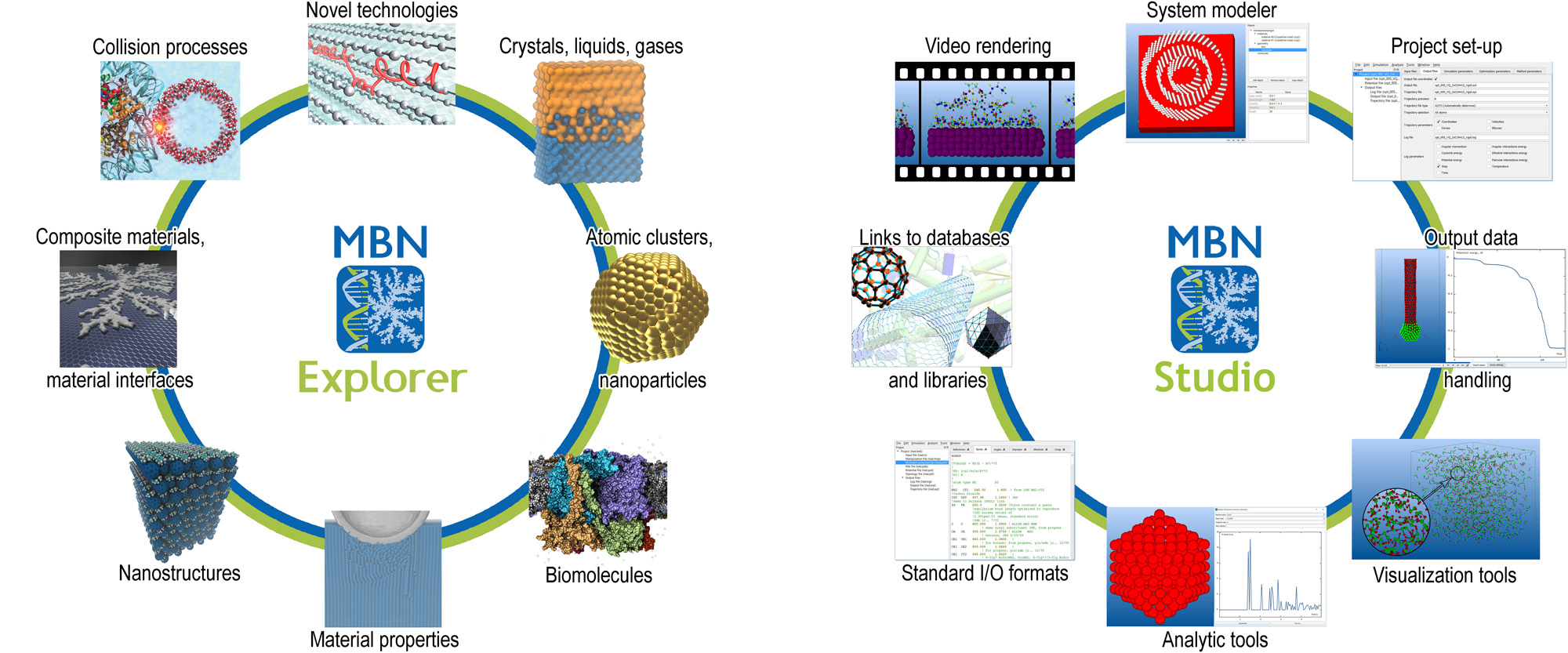The training course on Multiscale Computational Methods for Complex Molecular Systems will be held at the Università degli Studi di Ferrara (Ferrara, Italy) on October 26-27, 2017. It will be preceded by the Workshop of the H2020-RISE-PEARL project “Periodically Bent Crystals for Crystalline Undulators”, which will be held during October 23-25. The hands-on tutorial will explore physical models and computational approaches used for the simulations of Meso-Bio-Nano (MBN) systems and the investigation of their structure and dynamics at the atomic level of detail. The course is based on practical exercises with the universal computational package MBN Explorer and MBN Studio - a special multi-task software toolkit with graphical user interface developed for MBN Explorer. The tutorial will be performed with the latest release 3.0 of MBN Explorer and MBN Studio announced by MBN Research Center in March 2017. Figures below illustrate the main areas of application of MBN Explorer and the key features of MBN Studio.

In particular, the case studies of atomic clusters, nanoparticles, biomolecular systems, nanomaterials, composite materials and material interfaces, crystalline, liquid and gaseous systems, thermo-mechanical properties of materials, dynamical, collision, chemical and irradiation driven multiscale phenomena will be discussed. Relevant physical concepts, mathematical techniques and computational methods will be introduced, including force fields and algorithms used in molecular modeling, molecular dynamics, and Monte Carlo simulations on parallel computers. Special attention will be devoted to modeling crystalline structures, propagation of relativistic projectiles in crystals, quantitative analysis of the channeling and related phenomena. The tutorial is designed for graduate students, postdoctoral researchers and staff in computational and/or bio/nanophysical and chemical fields, material science, radiochemistry and radiobiology who seek to extend their research skills to include computational and theoretical expertise, as well as for all other researchers interested in theoretical and computational physics and chemistry. The pdf version of the Tutorial announcement can be downloaded here.